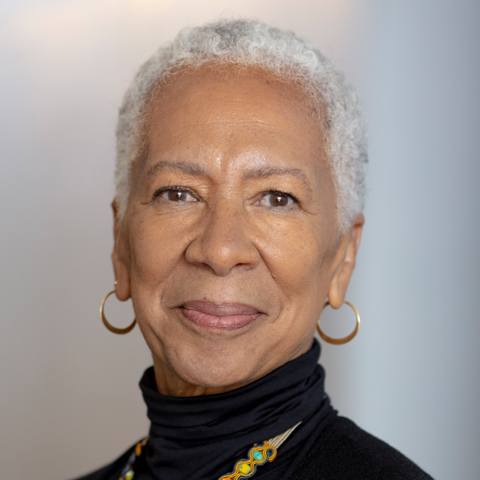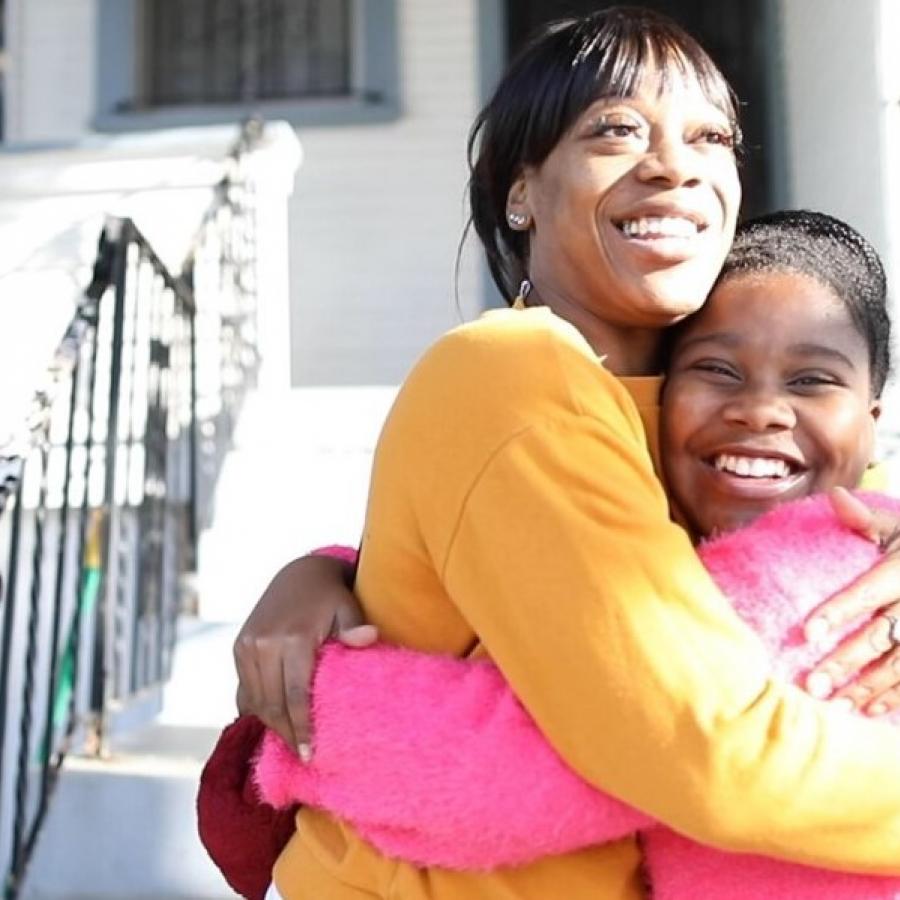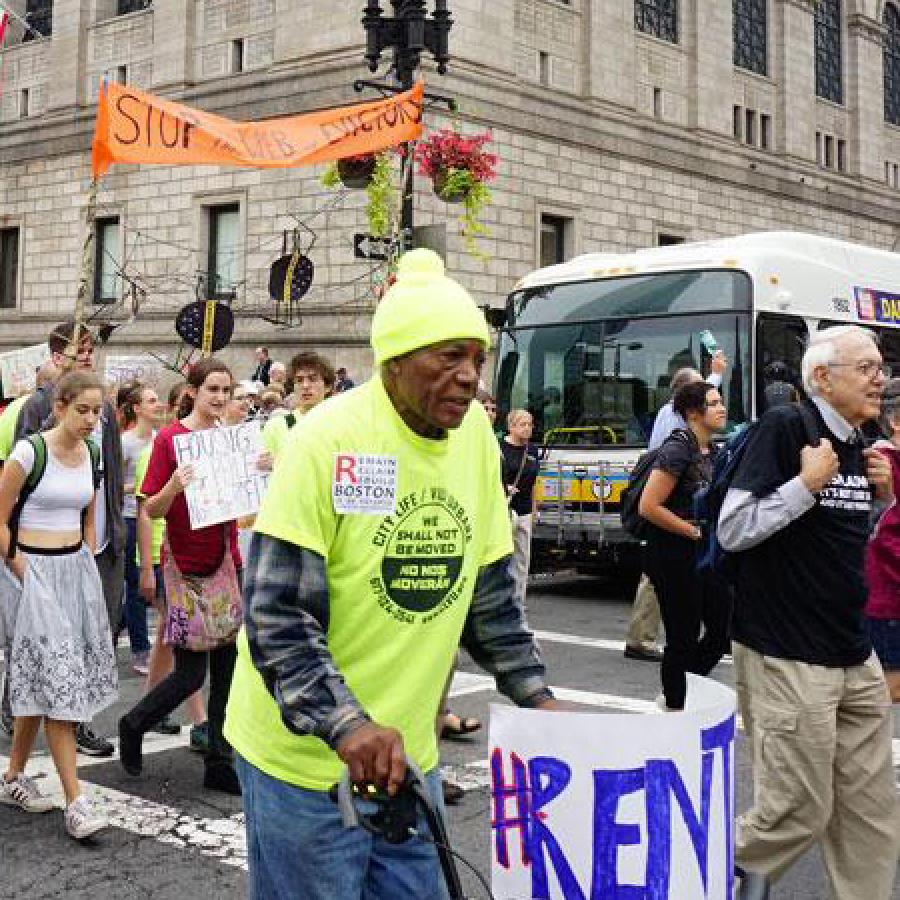Equity Speaks: A conversation with Steve Phillips and Angela Glover Blackwell
The dramatic growth of communities of color has laid the foundation for a new progressive American majority with the potential to transform the nation’s politics, policies, and economy, says author, lawyer, and political activist Steve Phillips.
The key is for progressive leaders to recognize and respond to this extraordinary moment in history. But for the most part, they have not, Phillips argues in his new book, Brown Is the New White. Drawing on extensive demographic and electoral data, Phillips shows why it’s mathematically wrong and politically perilous to chase White swing voters by toning down a progressive message. Rather, progressives will win elections by fielding candidates who have strong roots in communities of color; talk forthrightly about issues of race; and embrace an agenda focused on equity, economic inclusion, and opportunity for all. Phillips spoke with PolicyLink President and CEO Angela Glover Blackwell.
Listen to the extended interview below:
Read an excerpt of the interview below:
Angela Glover Blackwell: At PolicyLink, we’ve been saying for a while that with shifting demographics, getting the economic agenda right for people of color is going to get it right for the nation — that equity is the superior growth model. Your book reinforces this. Describe the political opportunity and the economic opportunity you see in this moment in America.
Steve Phillips: For a long time, the assumption around what policy should be and who it should target has been constrained by fears of the role of the conservative/moderate White swing voters. Throughout history, there have been progressive White leaders who tried to move forward a more equitable agenda but they always tempered it — from Thomas Jefferson trying to include references to slavery in the Declaration of Independence, to Lincoln trying to ameliorate fears during his campaigns that he would be too pro-Black, to Kennedy. And up to Obama. I believe they thought they were going as far as they could go and still be politically viable. But over the past 50 years, since the Voting Rights Act and the Immigration Reform Act, the numbers of people of color have become large. Those numbers, combined with progressive Whites who want to see a just and inclusive society, are, in fact, the majority. You can now stand for justice and equality and win. And you don’t have to worry any more that a policy agenda focused on justice and equality does not have majority support because, in fact, it does.
AGB: This new American majority has already achieved important victories. Although conservatives control the Congress, progressives — voters of color and White voters together — have elected progressive leaders in several states, and we see a city leadership across the country reflecting a progressive agenda. What are the takeaways in these victories for progressive candidates and their relationship with communities of color?
SP: First, we need people who will be champions of justice and champions of equality. Too frequently, people lead with caution and timidity and try not to alienate the more conservative, so-called swing voters. It’s a downward spiral. Not only do they fail to win those people over, but they also fail to inspire people who are most at risk in our society to come out and participate. Second, we need candidates who come out of communities of color. This is not just a question of identity politics. When a group has been exploited, marginalized, and oppressed for many years and someone comes out of that experience, you feel they understand your circumstance. You're more motivated to put that kind of person in office. That would be democracy as you see it — a leader who reflects your lived experience.
AGB: You're describing what so many of us have seen. But many progressives have been blind to the political potential of the rapidly growing communities of color. You take progressive leaders and funders to task for this. Why do you think they have failed to recognize the power of this remarkable demographic shift?
SP: At the highest level, there’s a history in this country of ignoring and diminishing people of color and their experience. Simultaneously, there’s been a celebration of White people, Whiteness, White intelligence. Even people who are progressives don’t realize the extent to which those biases play out in everything from hiring to policy decisions. I also think that those of us on the progressive side have to better explain that the path that we’re talking about is actually the path to victory. The incontrovertible record at the national level of the past eight years is that when we have put forward a candidate who comes from the communities of color and inspires the communities of color, we have won.
AGB: True! You also point out that an agenda that advances economic equity is a way to win elections. What are some of the policy changes that you believe really get at this agenda?
SP: The focus on minimum wage increases and the campaigns around the country have been interesting in that they have been very successful in lots of different states. It shows that there is agreement, even among sectors of more moderate White swing voters. Now issues around income inequality have become central to the popular debate. It is the source, I think, of a lot of the support and enthusiasm for Bernie Sanders. The next level is to actually go after the wealth inequality in the country. I don’t think we’ve done that sufficiently within the policy-debate realm. That’s when you begin to get at some really significant and potentially transformative approaches.
AGB: In the book you describe how several community organizations are successfully harnessing and channeling political energies from communities of color. What lessons can we extract about what these groups do and the attributes they bring to the work?
SP: California Calls, led by Anthony Thigpen out of Los Angeles, is the gold standard for this work. Anthony has built up an operation and a voter list from around 50,000 people to over half a million people by having a year-round program that is directly connected to the community organizations and the worker organizations that are in touch with and respected by the people of the local community. Groups that do immigrant service or work with domestic violence victims, labor unions who represent workers in those communities — those are the points of contact with voters. The genius of the model is in translating respect, trust, and familiarity into a voter mobilization operation. Building an electoral program on community-based organizations and leaders is far more effective than just running 30-second television ads.
AGB: You know, our demographics will continue to shift — nothing can stop that. Yet it is important for progressives to not sit on their laurels and think that demography is destiny. It depends on what you do with it. You point out in your book that conservatives are doing fairly well at identifying and backing candidates of color. What lessons can progressives learn from this?
SP: When you put your mind to it, you can do it!
AGB: Absolutely — race matters, race matters, race matters! I love how you end the book. You make it clear this is not just about the mathematical calculations of political campaigns; it’s really about the enduring legacy and centrality of race in American life. How do you move the nation to recognize that race matters? And how do we get people comfortable with embracing the idea that achieving a racial equity agenda is good politics, it’s good economics, and it’s good for the future?
SP: One of the things that’s not appreciated is that being forceful, forthright, and unapologetic around racial justice within this country will actually attract a number of progressive Whites to you. That was the subtext of Obama's election. It’s why there was great hope and meaning tied up in his election. I believe you can attract more Whites than people realize by offering a hopeful and inspiring vision that we’ll finally redress the history of racism within the country and the contemporary reality of racism. We can enlist a whole multiracial army of people to change the country. And that army will be a majority of the people.



